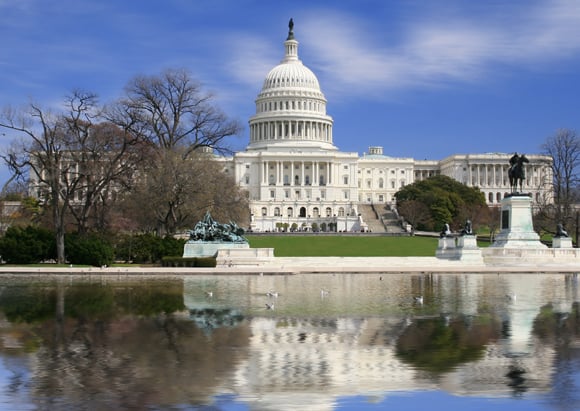If an agreement emerges over the next two weeks to avert the automatic tax increases and spending cuts contained in the so-called fiscal cliff, it is unlikely to contain details on how to curb tax deductions and special tax breaks.
In the meantime, advocates for retirement tax incentives aren't being lulled to sleep. In fact, they are stepping up their lobbying to protect tax deferrals for 401(k) plans and individual retirement accounts during comprehensive tax reform next year, when Republicans and Democrats are likely to turn to them to raise revenue for other tax code changes.
The Financial Services Institute Inc. sent a letter to the leaders of the Senate Finance Committee today urging the panel to
pass a resolution that declares that the deferrals help Americans build their post-work-life nest eggs.
“It is critical to retirement security that the current system be retained,” Dale Brown, the FSI's president and chief executive, wrote in a letter to Senate Finance Chairman Max Baucus, D-Mont., and top-ranking Republican Orrin Hatch of Utah. “Any attempt to amend the tax code by reducing the amount employees can save each year will jeopardize the retirement security and quality of life of these American workers.”
The resolution has
10 co-sponsors in addition to its author, Sen. Richard Blumenthal, D-Conn. It was introduced Dec. 6.
Although it is nonbinding, the introduction of the resolution is significant because the Senate doesn't consider many of them, according to Judy Miller, director of retirement policy at the American Society of Pension Professionals and Actuaries.
“This is laying down a marker,” said Ms. Miller, a former senior benefits adviser for Mr. Baucus on the Senate Finance Committee. “Next year, when the real [tax reform] work begins, we hope this is a sign [the senators] will be speaking up for us.”
Three weeks ago,
ASPAA launched an initiative called Save My 401(k). Since then, ASPPA members and other supporters have sent more than 50,000 e-mails to Congress asking lawmakers to leave retirement savings incentives alone during tax reform.
“It is off to a good start,” Ms. Miller said.
The Investment Company Institute also is weighing in on the issue.
In talking to lawmakers, ICI president and chief executive Paul Schott Stevens emphasizes that retirement incentives are tax deferrals.
Unlike tax exclusions for employer-paid health care and mortgage deductions, retirees will pay tax on the money that they have saved when they withdraw it during their golden years.
“Tax incentives for retirement deserve to be and ought to be treated differently from these others,” Mr. Stevens said.
He is also trying to pre-empt the argument that retirement incentives disproportionately benefit the wealthy.
Mr. Stevens said that the tax breaks can be just as valuable, if not more so, for people at lower income levels.
“We're not talking about haves versus have-nots,” he said. “Overwhelmingly, Americans want to preserve the tax incentive for retirement.”
The effort to curb deductions may not result in cutting back specific incentives. Lawmakers may put that decision in the hands of individual taxpayers simply by placing a $50,000 ceiling on deductions or limiting them to a percentage of adjusted gross income.
“The AGI limit is getting more traction,” said Dean Zerbe, national managing director of alliantgroup LP and former Republican tax counsel for the Senate Finance Committee.
“Not identifying what deductions are curbed is actually the whole beauty of the limit,” he said. “Politicians can't get attacked for going after a specific deduction.”







